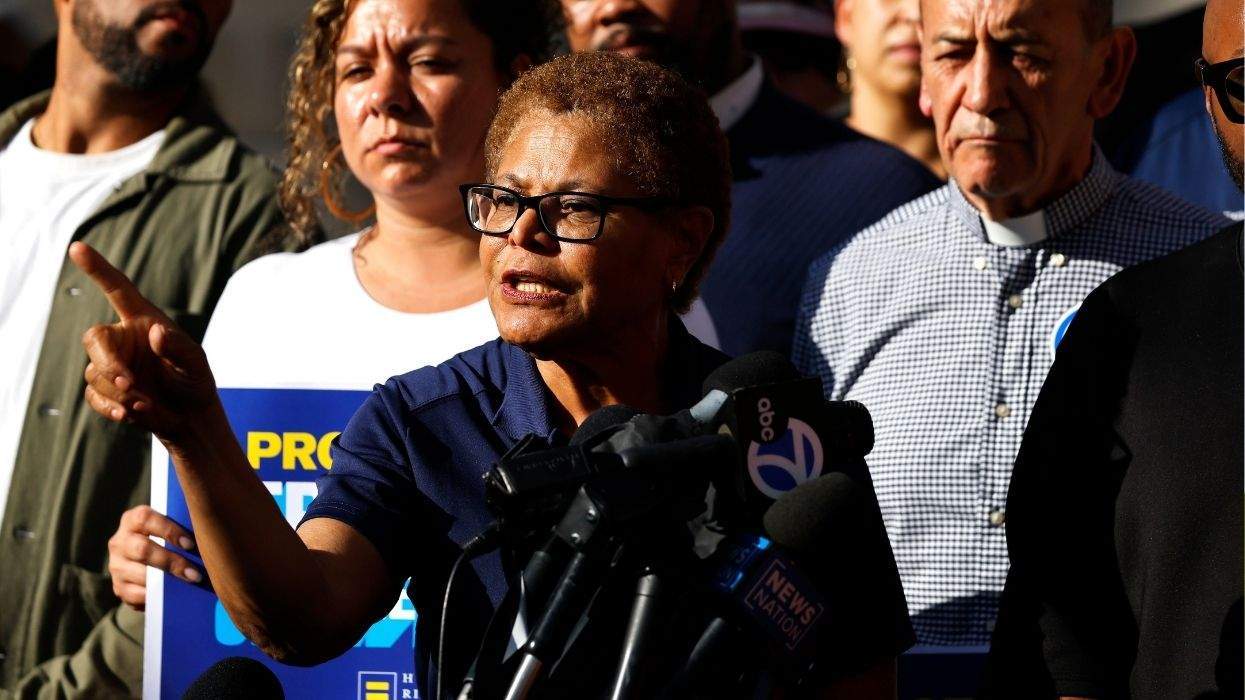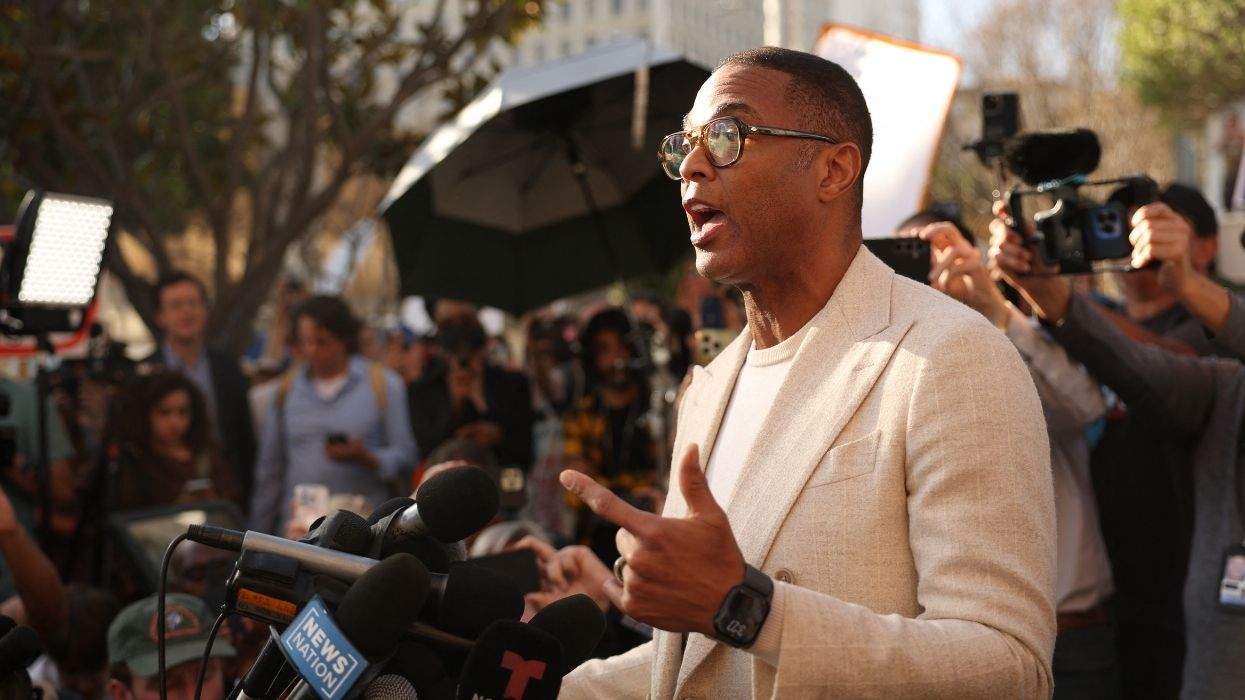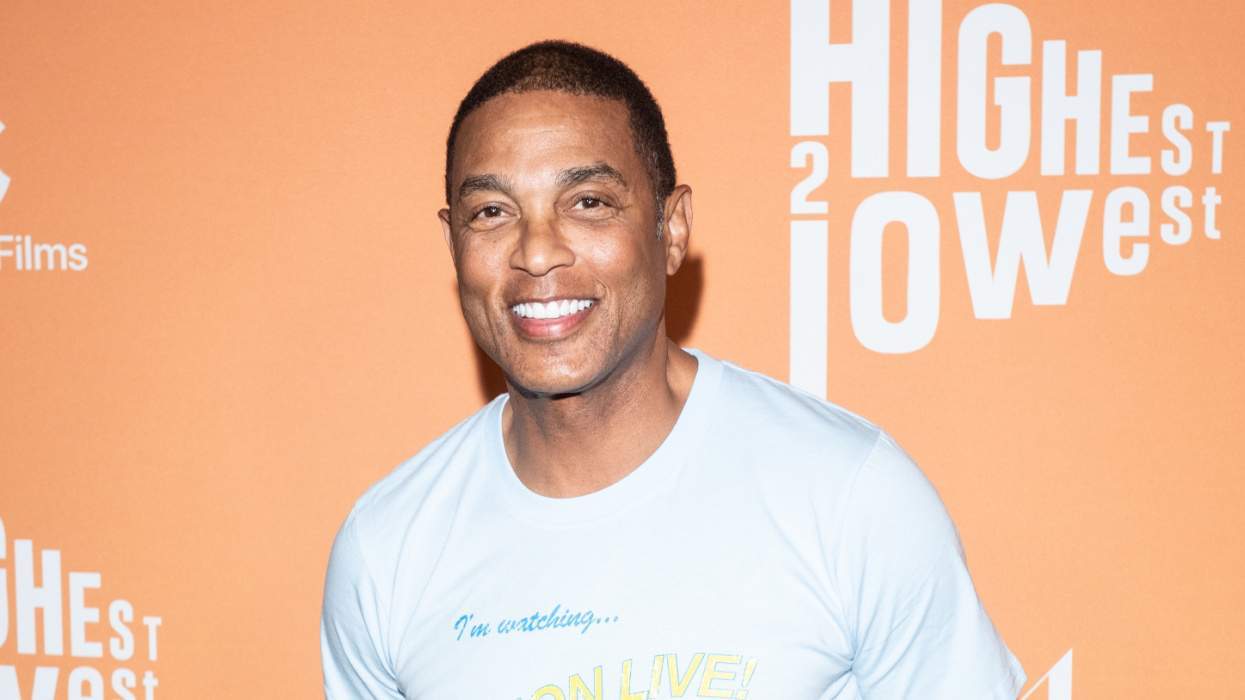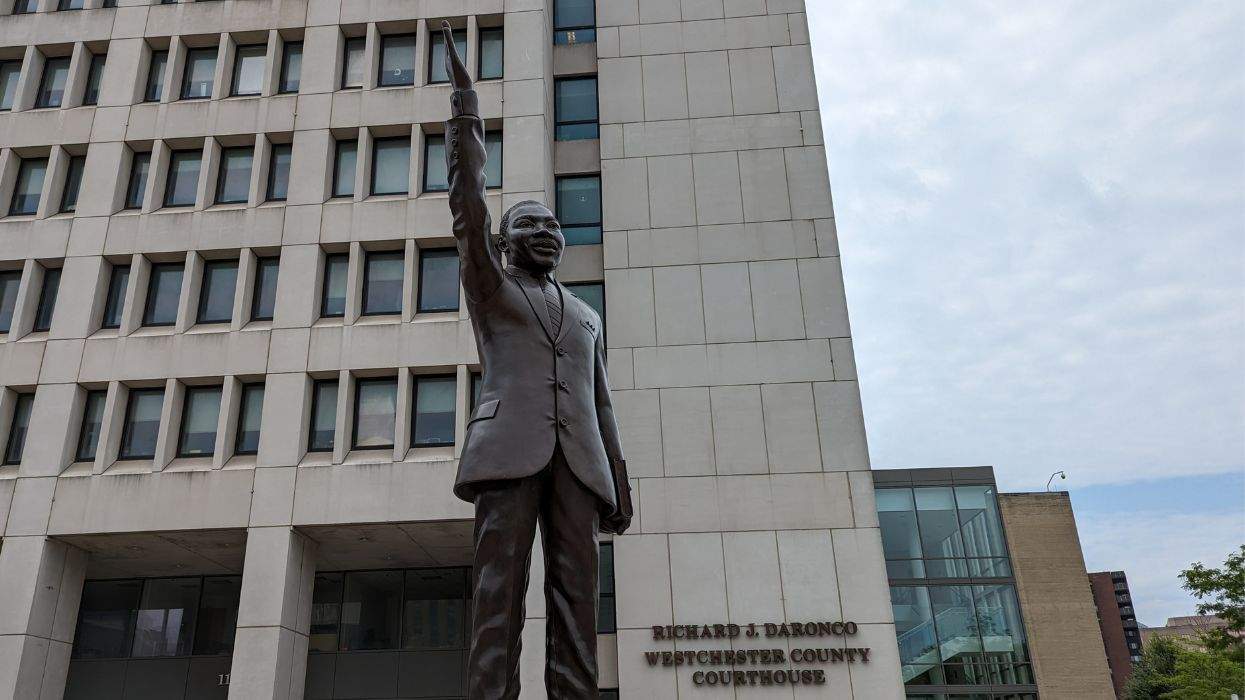A police officer who saved lives at the Pulse massacre will be out of his job by the end of the year, and says it's because of post-traumatic stress suffered during the attack. Survivors of the shooting in Orlando have rallied around the officer, but so far to no avail.
"Many of us are indebted to him," says Pulse survivor Orlando Torres, "and it is a shame that his department tried firing him because he was asking for help for his PTSD, when they should have supported him."
The Eatonville Town Council this month voted to pay sick time to Cpl. Omar Delgado but end his employment at the end of the year, as reported by the Orlando Sentinel, months before he qualified for a 10-year pension vestment. Eatonville is a suburb of Orlando. Delgado was among the first responders to the June 2016 shooting at the Orlando gay bar.
Angel Colon, another survivor of the shooting, was pulled from the club by Delgado and says the officer both saved his life and provided support after the attack. "It's a horrible feeling because this man, Omar, has been there for me ever since June 12," Colon told local Fox 35.
The incident has also created a somewhat unusual alliance of supporters in Orlando's LGBT community and those in the so-called Blue Lives Matter movement. Randy Sutton, of The Wounded Blue, posted a Facebook message in support of Delgado. "The worst part about this story is that it is being repeated all over the country. Law Enforcement Officers who are injured physically and emotionally are being victimized by the very cities they served," said Sutton, who says his group fights for the interests of injured officers.
Christopher Hansen, another survivor of the shooting, says he feels empathy with Delgado, as he too suffers from PTSD after the attack. Hansen says he understands why Delgado can't be on patrol now, as officers need to be able to respond at a moment's notice to a situation, but PTSD sufferers may be triggered instead. But the fact Delgado acted selflessly in the midst of the shooting last June means his employers should have his back now. "Omar deserves to be 100-percent disabled and offered his retirement package for the heroic actions of his efforts that night," Hansen says. "All those affected that evening need much tender care, attention and the affection of those around. None of us asked for this."
Ramses Tinoco, who survived the attack but lost several close friends, agreed. "He was one of the first responders and he saw death all over and it triggers his emotions deeply," Tinoco says. In Tinoco's opinion, the police department should support Delgado's therapy and keep him on the job in a different capacity until his retirement.
Even family for victims who were not saved have rallied to the officer's support. "I don't want to even imagine the scene that officer Delgado encountered, what he was witness to in that horrific night," says Mayra Alvear-Benabe, whose daughter Amananda Alvear was killed in the shooting. She says the community needs to have Delgado's back the same way the government supports veterans who suffer PTSD after combat.















